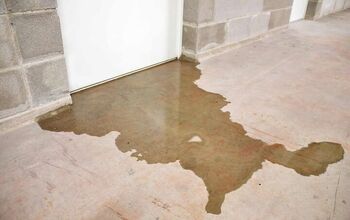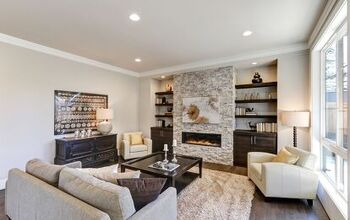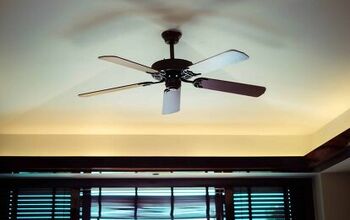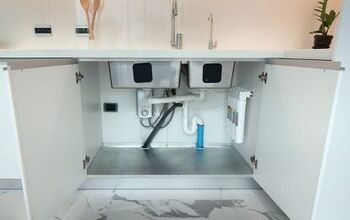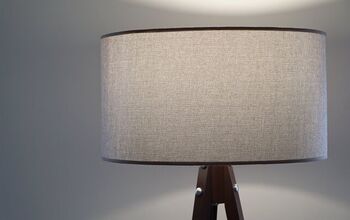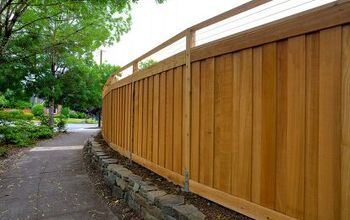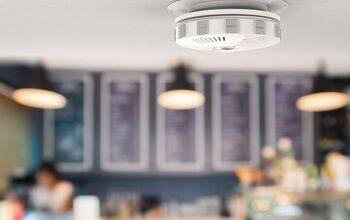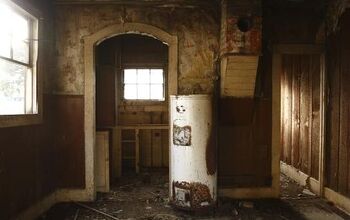What Temperature Should A Vacant House Be In The Summer?

If you are leaving your house for the summer, there are quite a few things that you should do. The temperature inside the home is as important as the temperature outside. Making sure that it stays in the correct range will lower your risk of any problems.
A vacant house in the summertime should stay at around 85 degrees Fahrenheit. This temperature will ensure that heat damage like peeling wallpaper or chipped paint does not occur. It will also help keep humidity from turning into condensation. However, having it any colder than that can cause any wood to warp, and crack.
In this article, we will cover all the necessary precautions you should take when leaving a home vacant for the summer. No one wants their vacation ruined by an emergency back home. By checking all the boxes and taking care of everything, you can go on vacation worry-free.
Conserving Energy In a Vacant Home
Since you will have to keep your thermostat at 85 degrees for the entire summer, efficiency is key. Take extra precautions to conserve as much energy as possible. Prepping your house thoroughly for the long period of vacancy will also help keep it energy efficient.
Turn off your water heater
Whether or not your water heater is gas or electric, you will not be using it while you are gone. Because of this, it can be a huge energy saver to turn it off before going on vacation. Just remember to turn it back on before taking that first shower back home.
Unplug your refrigerator
A refrigerator running all summer will be a massive energy waste. Especially if you have nothing in there due to being gone for perhaps months at a time. Because of this, empty and unplug your refrigerator before any long-term vacancy.
Unplug other electronics
It might not seem like it, but small consumer electronics can be huge energy sucks as well. Even if they are not turned on, consumer-grade electronics can use power just by virtue of being plugged in. Clocks, televisions, and microwaves should all be unplugged before leaving.
Close your curtains
Make sure that all curtains are closed before leaving for a long stretch of time. This will not only help keep your house insulated, but it is also a security measure. If your curtains are closed, it is harder to tell that you are not home.
How to Close up a House for the Summer
Remove any flammable materials
One consideration that you should make before leaving the house for the summer is removing flammable materials. Propane tanks, gasoline for lawnmowers, and more are often stored in the garage. These should be removed due to any excess heat potentially building up.
Store sensitive things in cool places
Things such as candles, makeup or anything else that may melt in high temperatures should be stored away. Even with the thermostat set at 85 degrees, direct sunlight gets in places we don’t expect. Store anything meltable out of reach of the sun.
Leave water out
If you live in an area that is dry during the summer, leave buckets of water around the house for moisture. These can help mitigate things like dried out electrical connections and other safety issues.
How to Close up a House for the Winter
Shut off the water
Obviously, how you close up your house for the winter will depend on whether or not it snows. However, shutting off the water before leaving it’s always a good idea. Run all the faucets and flush the toilets after doing this to ensure it is all gone. This will prevent frozen pipes.
Close the flue
Animals have a way of finding unlikely entrances to places. Your chimney is no different. Make sure the flue of your fireplace is closed to prevent animals or snow from making its way into your living room.
Check your sump pump
Perhaps the most important step of closing up your house for the winter is checking your sump pump. Nobody wants to come back to their summer house with a flooded basement. Make sure it is in good working order and functioning as it should be before leaving.
How Do You Keep an Empty House Secure?
Keeping an empty house safe for months at a time is no easy task. However, you can take a few extra steps and give yourself the best chance. Security can be difficult if you are far away.
You can start securing your home by giving a key to a trusted friend or neighbor who is there year-round. This is one of the best ways to keep activity bustling at the house. Have them stop by every once in a while and check on things to make sure everything looks normal.
You can also do things like set automatically timed lights to make it appear you are home. Keeping a car parked in the driveway is a great way to make it look like you never left. Have your trusted friend or neighbor gather any mail or newspapers to make sure they don’t pile up.
How Long Can You Leave a House Empty?
Generally, it is not considered a good idea to leave the house completely empty for more than a year. This leaves it vulnerable to squatters, burglars, and all kinds of other issues. If you have a vacation home, it is best to occupy it at least once a year.
If occupying a home more than once a year is not possible, you can get a house sitter. This is an added expense, but could be well worth it to ensure your home’s safety. It is also possible to work out a free room and board situation with a house sitter in lieu of payment.
One of the reasons why you should not leave the house empty for more than a year is for insurance purposes. Most insurance policies will not cover an unoccupied home.
What Is the Difference Between Vacant and Unoccupied?
As far as your insurance company is concerned, there’s a big difference between vacant and unoccupied. Your insurance company needs to issue you a different policy for each. Luckily, there is a very easy distinction between these two categories.
The basic distinction between vacant and unoccupied is that vacant homes have absolutely nothing in them. Unoccupied homes have furniture, kitchen items, and other personal belongings that indicate residence. Generally, this will include a vacation home.
However, it is always best to check with your insurance company before leaving a house empty for a long time. Depending on their stipulations, you may need to hire a house sitter or get a different policy.
Related Questions
Is an empty house colder?
For the most part, a house that has no furniture or clothing and it will be colder. It is more difficult to circulate air in a house that contains furniture than it is in one that doesn’t. However, this will often depend on the climate your home is located in.
Should you close vents in unused rooms?
Closing vents in unused rooms will help direct air into rooms that are being used. Although, it will also stop the circulation of the old air, making the room stale. Depending on how often the room gets used, you may want to experiment with leaving vents open.
Is it okay for AC to run all day?
Running your AC all day may seem like it is not a good idea. However, it is actually much tougher on your AC unit to be constantly turning it on and off. It will not be cheaper to run it all day, but it will be easier on the AC unit itself.

I am a writer and editor from The Bay Area, CA. When I'm not typing, I enjoy hiking, woodworking and gardening. I love sharing tips and discovering new trends in home improvement.
More by Michael Oconnor



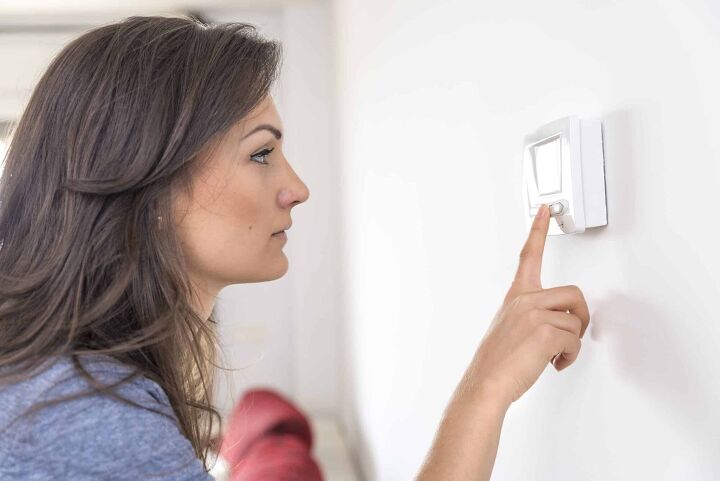

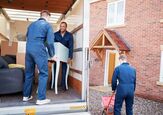




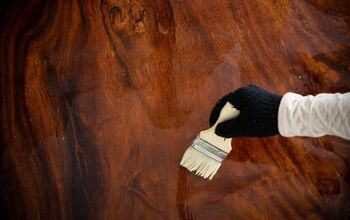
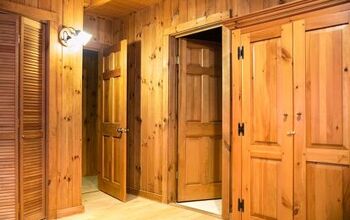
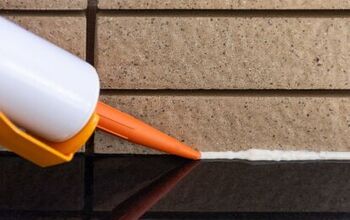
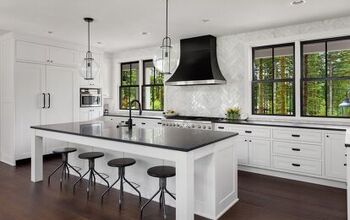
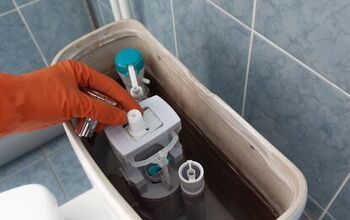

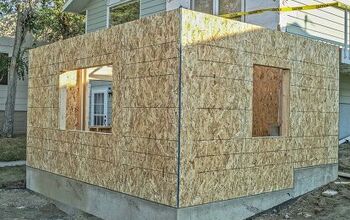
![12 Washing Machine Brands to Avoid [with Recall Data]](https://cdn-fastly.upgradedhome.com/media/2023/07/31/9075781/12-washing-machine-brands-to-avoid-with-recall-data.jpg?size=350x220)
